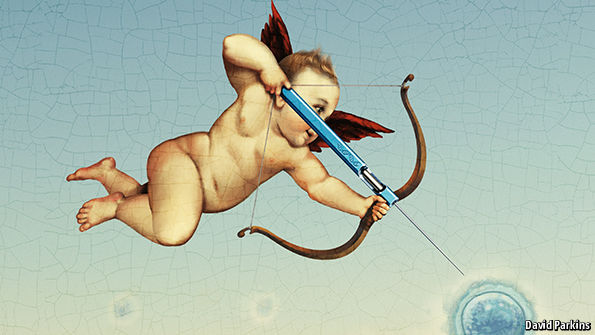Reproductive technologies: Gene editing, clones and the science of making babies
Reproductive technologies
Gene editing, clones and the science of making babies
from The Economist
20 yrs ago, Dolly the sheep triggered much fuss about nothing. Now, technological advances are making cloning humans more feasible
Some fear of people’s control over reproduction. Others argue for the right to alleviate suffering from childlessness or genetic diseases
Last year, new reproductive practice was added: mitochondrial transplantation / three-parent children
They bring the possibility of choosing which embryo will live or die, which can seem disgusting. But disgust is not a good guide to policy
Disgust often goes along with dystopian alarm. Reproductive science’s progress is so fast that people worry about the outcome
Mitochondrial transplants are intended to avoid dangerous diseases and will be familiar like other reproductive practices e.g. IVF and AID
Researchers should not be allowed to experiment on human fetuses, test within the law’s bounds and value people’s happiness and health
Growing sperm and eggs from body cells allows gay couples to have children but should be banned for one parent because of the child’s health
Gene editing will eliminate genetic diseases. But breeding babies with new traits and cloning other people raises questions
Should bereaved parents be able to clone a lost child? Should the wealthy be able to pay for their children to be intelligent and diligent?
Opinions change as people get used to. We need to protect the interests of the unborn. The risk is to hold back and leave people to suffer

